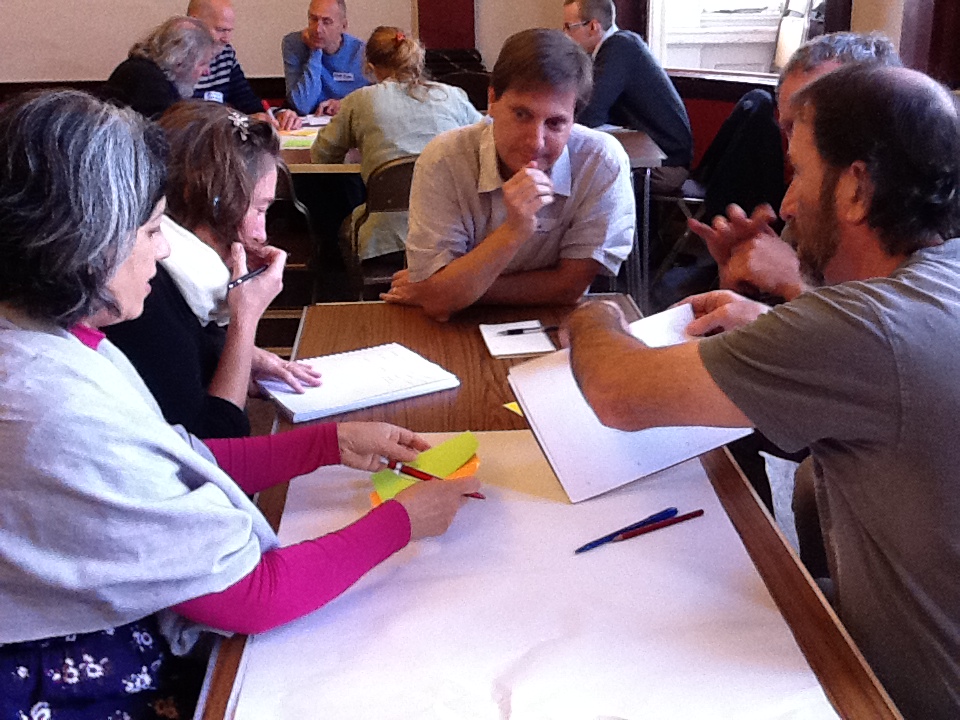|
Transition Research Network Follow Up Workshop
Kingston University 19 November 2012 Following on from an engaging first workshop held in Kingston upon Thames in October, a sub-group, comprising delegates who contributed to an open table discussion there on how to make transition initiatives more inclusive, decided to continue the conversation, again in Kingston. Audley Genus, from Kingston University put together a proposal for funding for the event, together with Sam Aukland and Mandy Meikle. The proposal for the event was duly funded by the Energy Security in a Multi-polar World cluster, administered by Exeter University. |
Some of themes raised in the 2nd workshop related to practice and research on inclusiveness in transition and community energy initiatives. They were:
In terms of future work, we focused on how an emphasis on the work people do together around specific projects was a way of investigating and generating ideas on improving practices and engagement, which could be shared across Transition initiatives/community energy groups.
Sam’s MSc gives us an opportunity to ‘pilot’ these ideas, building on the research already done (e.g. Seyfang and Haxeltine’s paper in Environment and Planning C, and more generally, Walker and Devine-Wright’s paper and the work of Lucie Middlemiss).
- Scaling up of initiatives beyond the ‘pioneers’ and barriers to doing that e.g. lack of time, funding, other resources, joy; network limitations
- Translation of Transition Town ideas/adaptation of language to engage others beyond the ‘usual suspects’
- Linked to the above – how to effect the building of bridges with other actors such as small businesses and training providers (re plumbers and other installers), retailers, schools, universities, farmers, minority ethnic groups, trade unions etc.
- ‘Dissing’ the dog model of the start-up and growth of transition initiatives (i.e. the delegates were curious about the potential for research to uncover models for starting up and growing transition initiatives which diverged from the Transition handbook guidance).
- We also discussed researching the characteristics and activities of initiatives in ‘unlikely’ urban areas
In terms of future work, we focused on how an emphasis on the work people do together around specific projects was a way of investigating and generating ideas on improving practices and engagement, which could be shared across Transition initiatives/community energy groups.
Sam’s MSc gives us an opportunity to ‘pilot’ these ideas, building on the research already done (e.g. Seyfang and Haxeltine’s paper in Environment and Planning C, and more generally, Walker and Devine-Wright’s paper and the work of Lucie Middlemiss).


